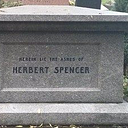The Real Anatomy of the State: A Rejoinder to Rothbard’s Classic
Murray Rothbard’s classic short book “Anatomy of the State”, while superb in countless ways is deeply flawed and a massive erroneous departure from the intellectual foundation he inherited from Mises and prior “Austrians”. The very word “Anatomy” should bring to mind ‘Natural Selection’ since that is the process that evolved/design the biological order and is also responsible for the evolution/design of the socioeconomic one. Unfortunately, instead of rightly seeing the “State” as an evolutionary growth that is “indeed the result of human action, but not the execution of any human design”(Adam Ferguson) he portrays it as some man-reasoned and malicious “gang of thieves writ large” which, again, could not be further from the truth and prior “Austrian” giants. How did the ‘The Creator’, the great Carl Menger, peace be upon him, see the state?
“There exists a certain similarity between natural organisms and a series of structures of social life, both in respect to their function and their origin…Natural organisms almost without exception exhibit, when closely observed, a really admirable functionality of all parts with respect to the whole, a functionality which is not, however, the result of human calculation, but of a natural process. Similarly we can observe in numerous social institutions a strikingly apparent functionality with respect to the whole. But with closer consideration they still do not prove to be the result of an intention aimed at this purpose, i.e., the result of an agreement of members of society or of positive legislation. They, too, present themselves to us rather as “natural” products(in a certain sense), as unintended results of historical development. One needs, e.g., only to think of the phenomenon of money, an institution which to so great a measure serves the welfare of society, and yet in most nations, by far, is by no means the result of an agreement directed at its establishment as a social institution, or of positive legislation, but is the unintended product of historical development. One needs only to think of law, of language, of the origin of markets, the origin of communities and of states, etc.”
Having a profound understanding of the evolutionary origins of social structures, Menger was keenly aware of the need to study society with the tools of biology. He writes:
“Now if social phenomena and natural organisms exhibit analogies with respect to their nature, their origin, and their function, it is at once clear that this fact cannot remain without influence on the method of research in the field of the social sciences in general and economics in particular….Now if state, society, economy, etc., are conceived of as organisms, or as structures analogous to them, the notion of following directions of research in the realm of social phenomena similar to those followed in the realm of organic nature readily suggests itself”
Such an evolutionary mindset allowed Menger to make what is arguably one of the greatest of all insights, the evolution of money, which in turn enables the division of labor and information which creates civilization or what Herbert Spencer so cleverly called “The Social Organism”. Mises too was of course a deep evolutionary thinker who saw man “like the cell which adapts itself to be part of an organism.” Just like the human body and the ‘market process’ is the result of the actions of trillions of cells yet not the result of any planning/designing by them, Menger/Mises/Hayek/etc. likewise understood that the “State” was an evolutionary growth that inadvertently provided vital services (offence/defense, the enforcement of the rules/myths which sustained the social order). But to Rothbard, “the State is the enemy of mankind”…”a predatory gang of robbers, enslavers, and murderers”, something arising out of man-made reason with a malicious intent as opposed to a complex ‘naturally selected’ structure, an error that led to countless errors like writing that “Since production must always precede predation, the free market is anterior to the State”. The so-called ‘free market’ and State are complex social institutions which have co-evolved. Primates exchange favors, they have hierarchies/‘proto-governments’. Rothbard is basically saying with 100% certainty that the chicken came before the egg (or vice versa). If Rothbard wants to find the original “gang of robbers” who came up with the idea of setting up a state to conspire to rob and fool everyone he will need to find the geniuses that invented the market, money, private property, religion, etc. and refer to Menger, Mises, and Hayek as misguided for not observing the obvious. Rothbard’s constant focus on the individual, his quest for a rational and sort of ideal libertarian ethics or legal code, erroneously focuses too much on the individual/tree while overlooking the far more vital evolutionary factors shaping society/forest. The great evolutionary thinker Herbert Spencer would say that Rothbard “absolutely ignores this genesis of social structures and functions which has been going on through the ages. The deeds of the ruler who modifies the actions of his generation, it confounds with the evolution of the great body-politic itself, of which those actions are but incidents. It is as though a child, seeing for the first time a tree from which a gardener is here cutting off a branch and there pruning away smaller parts, should regard the gardener, the only visible agent, as the creator of the whole structure: knowing nothing about the agency of sun and rain, air and soil.”
These errors keep Rothbard away from mainstream more evolutionary thinkers and relegated and appreciated with an almost cult-like following by very religious people whose minds/identities have thus been molded with a strong emphasis on morality and its implied good/right/just vs. evil/wrong/unjust mindset that plays such an important role in religion. This helps explain why just about every Libertarian who sees ‘Taxation as theft’ is a Rothbard fan.
